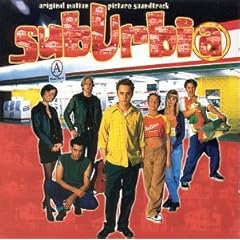 When you want to make someone laugh but you don't want to try very hard, it is easy to rely on exaggeration. Hyperbole, overemphasis, or just plain yelling can—if handled properly—be a quick way to toss off a joke. Indulging in melodrama (in the modern, slang sense) works the same way. For instance:
When you want to make someone laugh but you don't want to try very hard, it is easy to rely on exaggeration. Hyperbole, overemphasis, or just plain yelling can—if handled properly—be a quick way to toss off a joke. Indulging in melodrama (in the modern, slang sense) works the same way. For instance:Office worker 1: "The copier is out of toner, in case you were going to copy something."
Office worker 2 (clenches hand into fist, bites knuckles): "Nooooo!"
It might be enough to get a pity laugh, anyway, and it serves to keep the conversation friendly and light. Melodrama gets a bad rap, much of it undeserved and due to chronic underappreciation. Mary Shelley's Frankenstein, for instance, is gothic melodrama (and proto-sci fi!) in its Sunday best. Nevertheless, there are reasons melodrama is the butt of coworker jokes the world over.
This past weekend, I went to a performance of subUrbia by Eric Bogosian at Capitol Hill's tiny Odd Duck Theatre. Bogosian is a playwright and actor, perhaps most recognized nowadays as the put-upon Captain Danny Ross on “Law & Order: CI.” The play subUrbia premiered in 1994, then the movie opened in 1996 starring—as every movie did then—Giovanni Ribisi, Parker Posey, and Steve Zahn. Essentially, subUrbia is an angst-ridden, post-high-school woefest with some Pabst thrown in for lubrication. Hesitant protagonist doesn’t know what he wants from life, angry feminist girlfriend wants to move to New York to do performance art, feminist’s friend drinks herself to death, people have sex in the woods behind the convenience store, a rock star and his publicist show up, etc. Imagine that “Empire Records” had a crazy baby with “Clerks.”
In 2006, Bogosian “updated” his script for a run at New York's Second Stage Theatre. As far as I can tell, all he did was give the characters cell phones and modernize the music references. This was the version I saw on Saturday, and its awfulness, in all its vast intensity, was twofold. For one, the production was limited in scope by the tininess of the theatre company: limited budget, small house, rudimentary light and sound cues, and bad-to-middling acting. Some of the best theatre I’ve seen or worked on has been in tiny theatres with limited budgets, but no play can recover from being cast with mediocre actors.
Despite—and exacerbated by—the acting, the most unforgivable and egregiously terrible fold in the twofolded awfulness was the script. Eric Bogosian also wrote Talk Radio, which recently inspired the New York Times to declare that “[w]ith...Talk Radio, Liev Schreiber confirms his status as the finest American theater actor of his generation.” That the same man responsible for material of that caliber wrote subUrbia is baffling. SubUrbia positively drips with melodrama, and not in the good Lillian-Gish-in-“Broken-Flowers” way. Most of it was just annoying, but there were two particular lines that veered unintentionally into humor—that is, they were written and delivered exactly as if they were melodramatic jokes rather than dramatic exhalations:
Sooze: “Yeah, you know, when you called I thought, ‘there's a name from the past.’”
Pony: (he reaches out and strokes Sooze’s cheek) “Or the future…”
Jeff: “…Look, Tim, just go home, alright? Go home and sleep it off.”
Tim: “Well, what am I supposed to sleep off? My life?!”
Both exchanges sent my friend and coworker Kait and me into silent convulsions in the back row. The lines were intended to be dramatic, but were set up so easily (lazily?) that rather than mining the drama of the situation or revealing the inner thoughts of the characters, the dialogue remained shallow and self-referential. Really, both exchanges were built on puns. By their nature, puns pull you out of the story by being funny for funny's sake, rather than being funny as a part of character development or to move plot forward. So when a pun or a play on words is the basis for a dramatic interaction, we don't learn much about the characters, and everything immediately topples into a big soapy vat of melodrama on par with some of ABC's finest midday programming.
The characters of subUrbia didn't develop, no major problems were solved or created (except for that character that drank herself to death behind the convenience store, but that was to be expected), and I didn't learn anything about angry twenty-year-olds that I didn't already know. Of course, there is a plus side: now I've got a couple more good melodramatic jokes to share with my coworkers.




1 comment:
That "...or the future" line sooo sounds like something JD would say to himself in his head on Scrubs, and it would get a laugh from me for sure.
Post a Comment